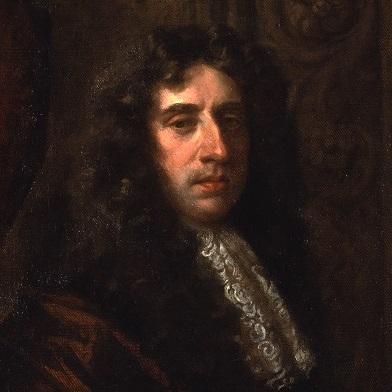Sir Edmund King, MD, was bred a surgeon, and had applied himself with some success to the study of chemistry, a circumstance which recommended him to the favour of king Charles II. He was created doctor of medicine by the archbishop of Canterbury; and was incorporated on that degree at Cambridge in 1671. On the 12th January, 1676-7, he brought letters from the king to the College, soliciting admission as an Honorary Fellow(1) (Literis Regiis postulaverit Socii Honorarii privilegium), which was then accorded him. Sir Edmund King was admitted a Fellow of the College, 12th April, 1687, having been so created by the charter of king James II.
Sir Edmund left behind him the reputation of being at the same time an excellent anatomist, a good surgeon, and an accomplished physician. Dr Willis, to whom he rendered important assistance in the preparation of the two works, “de Anima Brutorum,” and the “Pharmaceutice Rationalis,” styles him “medicus eximius et exercitatissimus anatomicus.” Some papers from his pen are to be seen in the Philosophical Transactions, containing Some Observations on Ants,” “The Animalculæ in Pepper and Transfusion of Blood.
Sir Edmund King is chiefly remembered in the present day for his decision and promptitude in bleeding king Charles II on his own sole responsibility, when that monarch was struck with apoplexy on the morning of Monday, 2nd February, 1684. This bold act was approved by the other physicians on their arrival; and Sir Edmund King was ordered 1,000l by the Privy Council, which, however, was never paid him.
Sir Edmund married, 20th June, 1666, at St Andrew’s, Holborn, Rebecca Polsted, of St Sepulchre’s. He died at his house in Hatton-garden, 30th May, 1709, aged 80; and left to the College by will the portrait of himself by Sir Peter Lely, which now graces the dining-room. This has been engraved by Williams; and at its foot he is described as the person “qui præsenti animo (ope divinâ) sereniss: regem Car. II a morte subitanea dexterrimè eripuit Februarii 2, 1684.”
William Munk
[(1) “To our trusty and well beloved the President and Censors of the Colledge of Physicians, in our City of London, and all others whom it may concern.
“CHARLES R. Trusty and well beloved, we greet you well. Whereas our trusty and well beloved Edmund King, Dr in physick, hath given us soe good proofe of his experience and skill, both in anatomy and other parts of physick, yt we have caused him to be sworne one of our owne Physicians, to attend our person; and being, therefore, willing to bestow upon him a further mark and testimony of onr approbac'on, and the esteeme we have of his industry and abilityes, by making him member of our Colledg of Physicians in or City of London, We have thought fit to signify our pleasure unto you therein, and doe hereby, in an especiall man'er, recom'end him, the sayd Dr Edmund King, unto you; that, upon the receipt of these our letters you doe forthwith admitt him Honorary Fellow of our said Colledge of Physicians, to have, receive, and enjoy all priviledges, benefits, and advantages belonging to the place and dignity of an Honorary Fellow, in as full and ample manner as any other person hath or doth enjoy the same, notwithstanding any other letters or orders of us to the contrary, with which we are pleased to dispense in this behalfe. And soe we bid you farewell. Given at our Court at Whitehall, the 20th day of January, 1676, in the 28th yeare of our reign.
“By his Maties com'and.
“H COVENTRY.]

